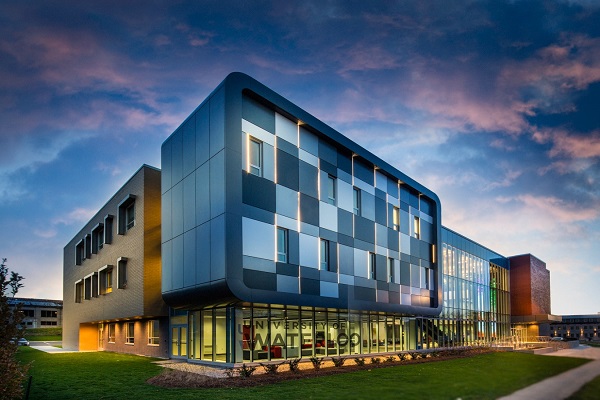University of Waterloo: $15.8 million awarded to six Waterloo research projects aimed at tackling climate change
The Government of Canada’s Environmental Damages Fund, administered by Environment and Climate Change Canada, is allocating $15.8 million to six University of Waterloo research projects to identify solutions to environmental challenges.
Funded through the Climate Action and Awareness Fund (CAAF), the research supports building sustainable net-zero emissions in Canada by 2050.
“Scientific research underpins everything we do to fight climate change. This funding provides critical support, allowing government and academia to collaborate to explore practical and achievable climate change solutions. By leveraging our unique expertise, we can foster collaboration across disciplines, sectors, communities, and research bodies,” said the Honourable Steven Guilbeault, Minister of Environment and Climate Change.
The research stemming from Waterloo’s projects will advance and extend existing collaborations among stakeholders, including municipal and community organizations, academic and federal science partners, researchers and trainees, to support climate change innovation and knowledge transfer.
The projects funded by CAAF are:
Can-Peat: Canada’s peatlands as nature-based solutions to climate change: Maria Strack, Geography and Environmental Management
Measuring and Monitoring City and Municipal Level GHG Emissions Mitigation Effectiveness: Amelia Clarke, School of Environment, Enterprise and Development
Mitigation of methane emission hot-spots from municipal landfills: Laura Hug, Biology
Residential Development Impact Scorecard for the Environment (RISE): Michael Drescher, School of Planning
Robust Decision Making Using Dynamic Adaptive Policy Pathways For Direct Air Capture Deployment in Canada: Eric Croiset, Chemical Engineering and Vanessa Schweizer, Knowledge Integration
Solutionscapes – designing climate and water smart agricultural solutions in complex working landscapes: Nandita Basu, Civil and Environmental Engineering and Earth and Environmental Sciences
“It’s critical for us to be working toward net-zero,” said Dr. Charmaine Dean, vice president, Research and International at the University of Waterloo. “Using established and emerging strengths in fundamental and applied research, Waterloo is pushing boundaries to accelerate the transition to a climate-resilient, low-carbon sustainable society, and advancing the sustainable use and management of space, land, water, and energy on a global scale.”
Nationally, the CAAF funding was part of Minister Guilbeault’s $58 million announcement for research projects that will advance science and technology to combat climate change. Discovering solutions to environmental challenges impacting our world is a key priority at Waterloo. The recent launch of the Sustainable Futures initiative aims to make the University of Waterloo a global leader in sustainability research, education, and innovation to benefit the environment, economy, and society.

